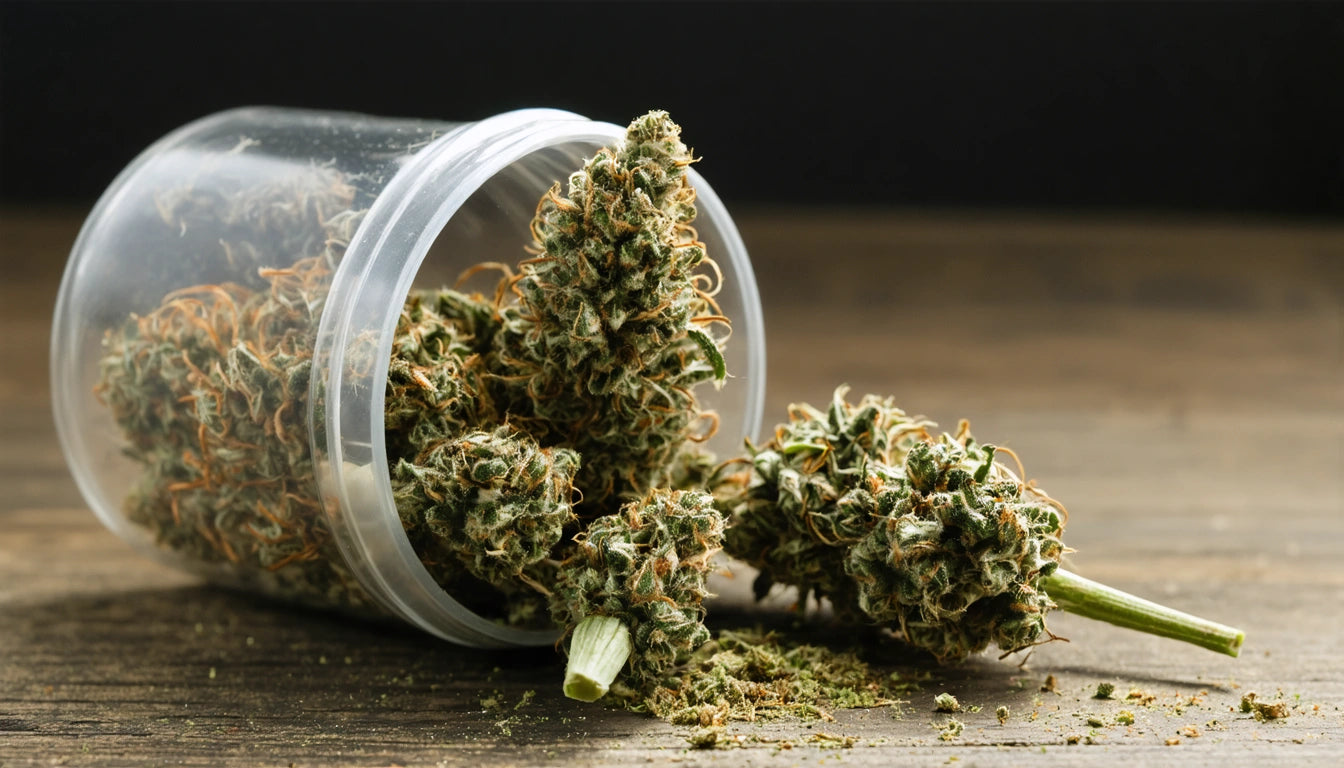Table of Contents
How to Successfully Quit Smoking Weed: Tips and Strategies
Deciding to stop smoking weed is a significant step toward reclaiming control over your life and health. Whether you've been thinking "I want to stop smoking weed" or "I can't stop smoking weed," know that you're not alone in this journey. Many people struggle with cannabis dependency, but with the right approach and support, successfully quitting is absolutely achievable.
Understanding Cannabis Dependency
Cannabis dependency develops when regular use leads to a psychological or physical reliance on the substance. While marijuana isn't typically considered as addictive as other substances, regular users can develop a dependency that makes quitting difficult.
According to research on cannabis consumption and cessation, approximately 9% of cannabis users develop some form of dependency. This percentage increases to about 17% for those who begin using during adolescence.
Why Quitting Weed Can Be Challenging
Many people wonder, "Why is it so hard to quit smoking weed?" The challenge stems from several factors:
- THC's effect on brain chemistry and reward pathways
- Established habits and routines centered around consumption
- Social circles where cannabis use is normalized
- Using marijuana to self-medicate underlying issues
- Withdrawal symptoms that can be uncomfortable
Understanding these challenges is the first step toward developing effective strategies to overcome them. As noted in guides about quitting cannabis, recognizing your personal triggers and motivations is crucial for success.
Highlight: The question "Why is it so hard to stop smoking weed?" has a scientific answer: THC alters dopamine release in the brain, creating reward patterns that can be difficult to break without proper support and strategies.
Preparing to Quit Smoking Marijuana
Assess Your Relationship with Cannabis
Before attempting to quit, honestly evaluate your relationship with marijuana:
- How often do you use?
- When do you typically use?
- What triggers your desire to smoke?
- What benefits do you feel you get from smoking?
- What negative impacts has it had on your life?
Set Clear Goals and Timeline
Decide whether you want to quit cold turkey or gradually reduce your consumption. While considering "when should you stop smoking weed," create a realistic timeline that works for your specific situation. Some people benefit from setting a specific quit date, while others prefer a gradual reduction approach.
Effective Strategies to Stop Smoking Weed
If you're thinking "I want to stop smoking weed" but aren't sure how to begin, these practical strategies can help:
Remove Paraphernalia and Access
Dispose of all smoking devices, remaining cannabis, and related items. While some people keep pre-rolled products or accessories thinking they might use them again someday, this often leads to temptation during moments of weakness.
Identify and Avoid Triggers
Recognize situations, emotions, or people that trigger your desire to smoke. Common triggers include:
- Specific friends or social settings
- Stress or anxiety
- Boredom or free time
- Alcohol consumption
- Certain locations or activities
Replace Smoking Habits
Develop new routines to replace times when you would typically smoke. Physical activity, meditation, creative pursuits, or even simple breathing exercises can help redirect your energy and focus.
Managing Withdrawal Symptoms
When you stop smoking pot, you may experience withdrawal symptoms, especially if you've been a heavy user. Common symptoms include:
- Irritability and mood changes
- Sleep disturbances
- Decreased appetite
- Anxiety or restlessness
- Intense cravings
According to experts on managing marijuana cravings, these symptoms typically peak within the first week and gradually subside over 2-4 weeks. Staying hydrated, maintaining a nutritious diet, and getting regular exercise can help manage these symptoms.
Building a Support System
Support is crucial when trying to stop smoking marijuana. Consider these resources:
Professional Support
- Therapists specializing in substance use
- Support groups like Marijuana Anonymous
- Addiction counselors
- Medical professionals who can help manage withdrawal
Personal Support Network
Share your goals with trusted friends and family who will support your decision. Consider using a "stop smoking weed app" that provides tracking, motivation, and community support. These digital tools can provide accountability and encouragement throughout your journey.
Healthy Alternatives to Smoking Weed
Many people use cannabis to address specific needs. Finding healthy alternatives can make quitting easier:
- For stress relief: Meditation, yoga, deep breathing exercises
- For sleep: Sleep hygiene practices, melatonin (consult a doctor), relaxing bedtime routines
- For social situations: Non-alcoholic beverages, new hobbies, sober social events
- For creativity: Art, music, writing, or other creative outlets
Exploring creative alternatives to cannabis use can help you discover new passions and coping mechanisms that don't involve substances.
Long-Term Success and Relapse Prevention
For those who have thought "I can't stop smoking weed" but have made progress, maintaining long-term success requires ongoing commitment. Recognize that relapse can be part of the recovery process and doesn't represent failure.
Develop a relapse prevention plan that includes:
- Identifying early warning signs of potential relapse
- Having emergency contacts to call when cravings hit
- Practicing self-compassion if you slip up
- Regularly revisiting your reasons for quitting
Remember that quitting isn't just about stopping a behavior; it's about creating a new lifestyle that supports your overall wellbeing. Many who successfully quit report improved mental clarity, better lung health, increased energy, and significant financial savings.
If you're wondering "why I should stop smoking weed," consider journaling about the positive changes you notice after quitting. This record can serve as powerful motivation during challenging times.
With persistence, support, and the right strategies, you can successfully navigate the journey to a cannabis-free lifestyle and discover new ways to find relaxation, creativity, and joy in your daily life.











Leave a comment
All comments are moderated before being published.
This site is protected by hCaptcha and the hCaptcha Privacy Policy and Terms of Service apply.